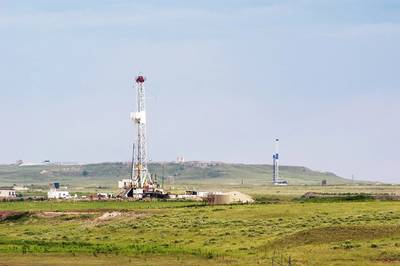Oil Prices Fall After Trump's Tariff Threat Against China
Oil prices fell on Monday after U.S. President Donald Trump said he would sharply raise tariffs on Chinese goods this week, risking the derailment of trade talks between the world's two biggest economies.
U.S. West Texas Intermediate (WTI) crude futures were at $61.68 per barrel at 1338 GMT, down 26 cents. WTI hit $60.04 earlier in the session, its lowest since March 29.
Brent crude futures were broadly steady at $70.88 per barrel, having earlier hit its lowest since April 2 at $68.79.
Trump said on Twitter (TWTR) on Sunday that he would hike U.S. tariffs on Chinese goods this week, pulling down global financial markets, including oil futures.
"Trump's sudden hard line on China tariffs has spooked investors, who are scrambling to reduce their risk levels in the markets," said Jasper Lawler, head of research at futures brokerage London Capital Group.
"The prospect of months of trade talks being derailed by Trump has raised concerns over future demand for oil," he added.
Chinese Foreign Ministry spokesman Geng Shuang told a news briefing on Monday that a Chinese delegation was still preparing to go to the United States for trade talks.
"We are also in the process of understanding the relevant situation," he said.
Trump's threat to increase tariffs on $200 billion of Chinese goods at the end of this week has outweighed the announcement that the United States is to send a strike group to the Persian Gulf, Vienna-based consultancy JBC Energy said.
In a sign of rising tensions in the region, the United States is deploying a carrier strike group and a bomber task force to the Middle East.
The deployment sends a clear message to Iran that any attack on U.S. interests or its allies will be met with "unrelenting force", U.S. national security adviser John Bolton said on Sunday.
Within the oil industry, there are signs of a further rise in output from the United States, where crude production <C-OUT-T-EIA> has surged by more than 2 million barrels per day (bpd) since early 2018 to a record 12.3 million bpd.
The United States is now the world's biggest oil producer, ahead of Russia and Saudi Arabia.
The number of rigs drilling for gas in the United States fell by three to 183 in the week to May 3, while oil-directed drilling rigs rose by two to 807, data from oil services firm Baker Hughes showed on Friday.
(By Ahmad Ghaddar, Additional reporting by Henning Gloystein in Singapore; Editing by Dale Hudson/Jan Harvey, Emelia Sithole-Matarise)

